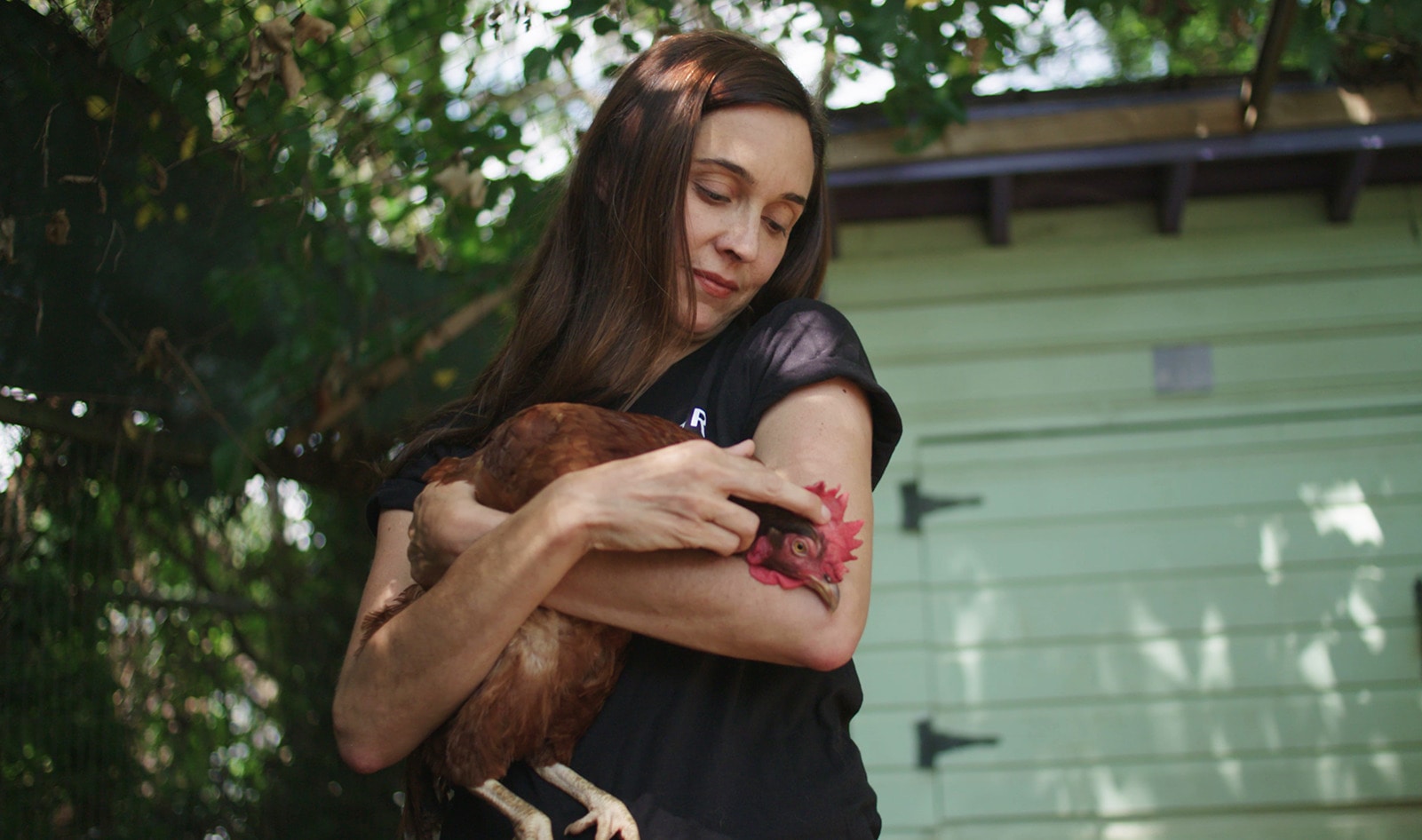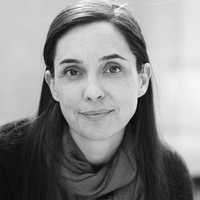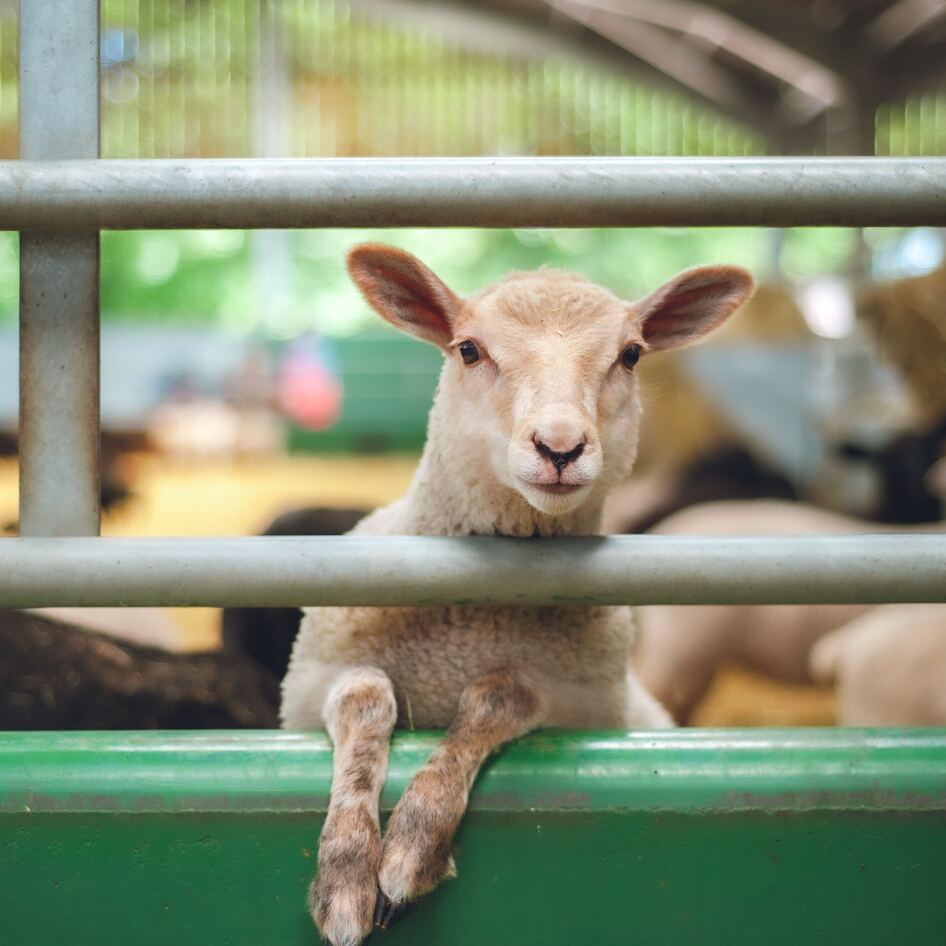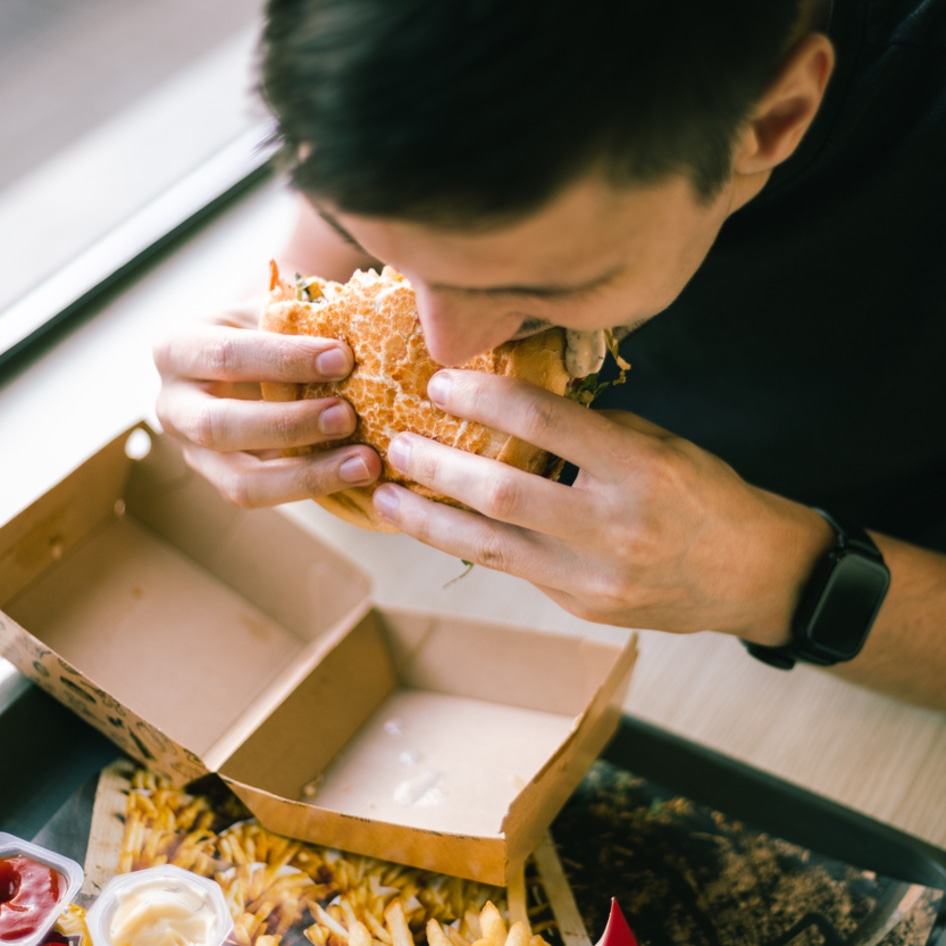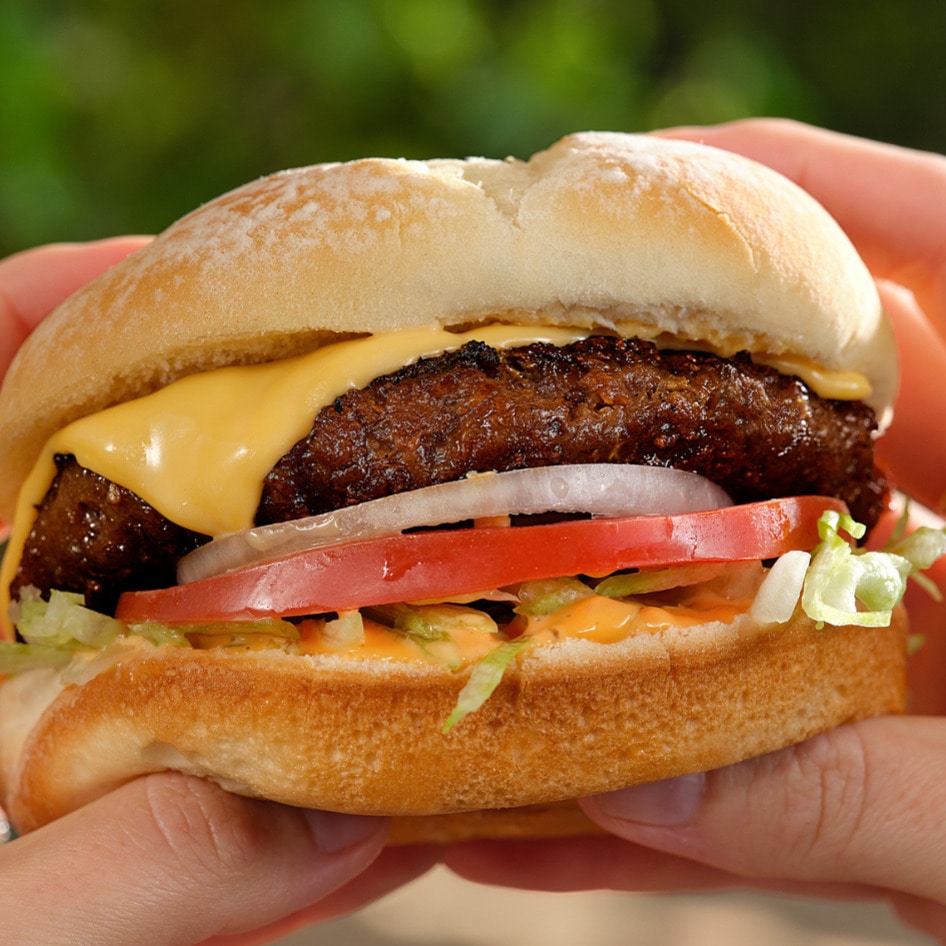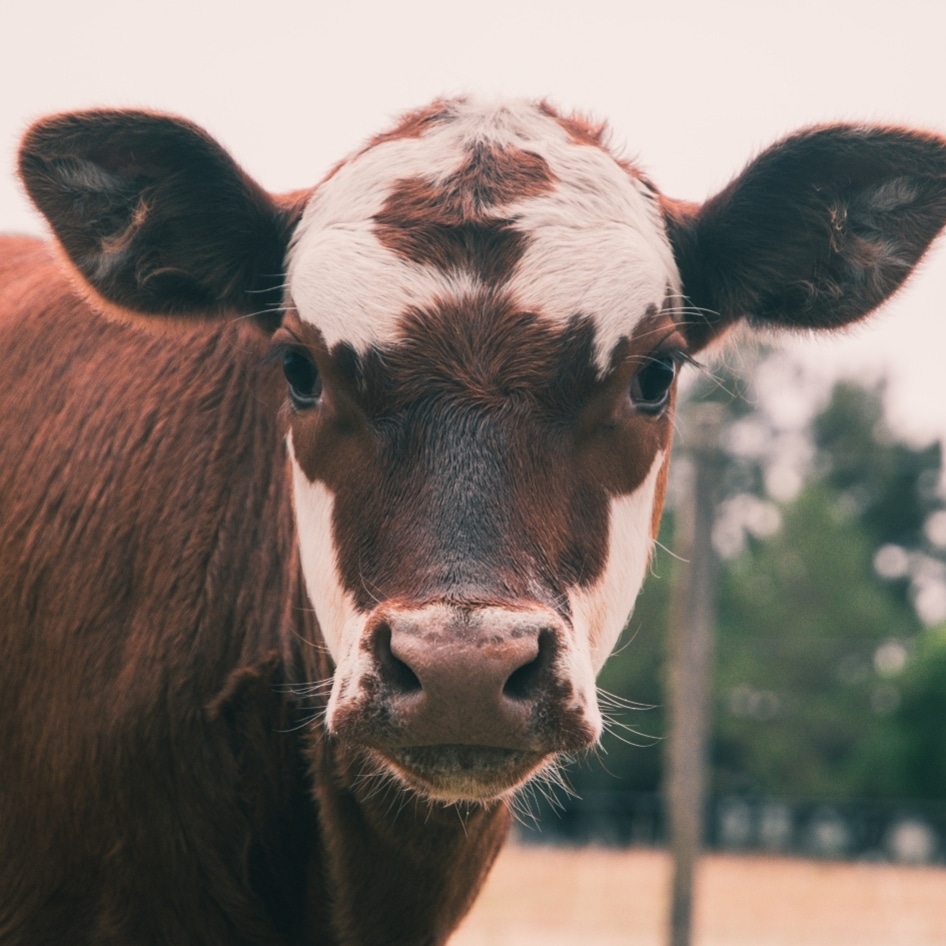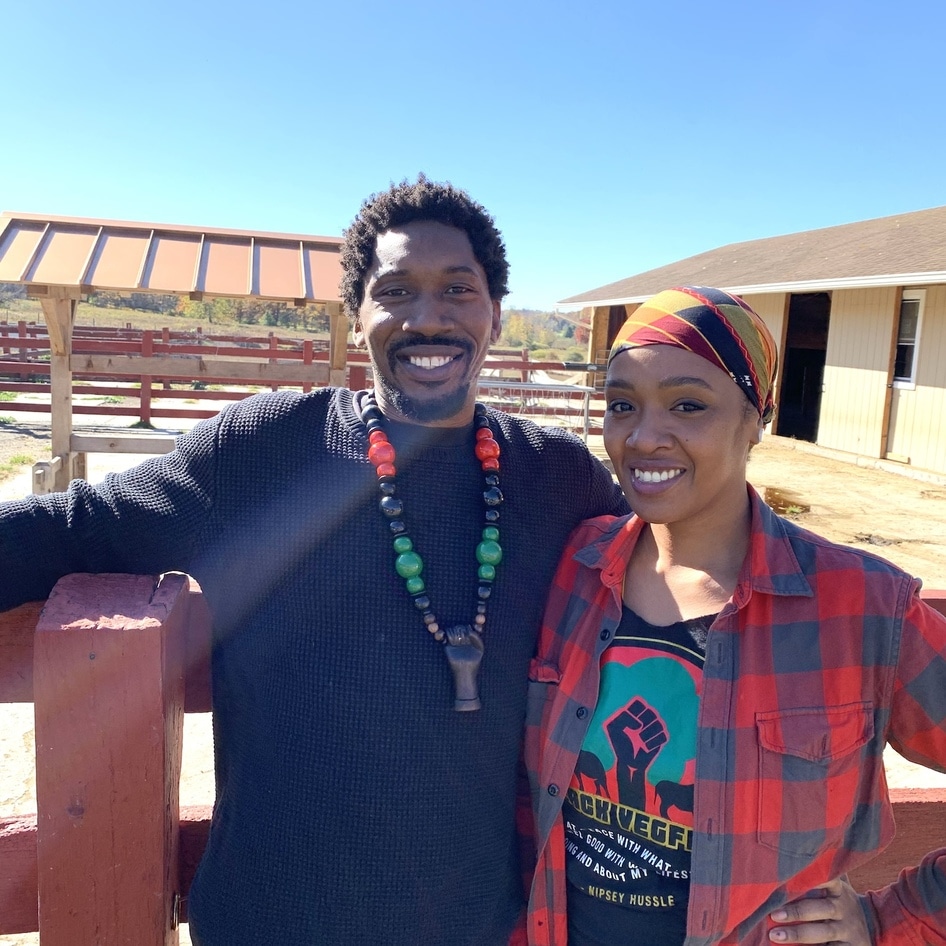Today I write not only as the president of an international animal protection nonprofit, but as a mom who wants to leave her kids a world better than the one they were born into.
When my son was born, I was struck by the realization that time is precious, and while our climate situation is dire, a new report by the IPCC, the UN body that advances climate-change science, gives us hope. We still have time. But we must change our ways now. As a species, we must truly look at ourselves in the mirror. This means we must stop ignoring the cow (and pig, chicken, and fish) in the room—industrial animal agriculture. It plays a devastating role in climate change, as well as biodiversity loss, pollution, and rising health threats.
I once took a swim in a dead zone—a firsthand look at how factory farm pollution robs ocean habitats of oxygen, killing or driving away once teeming, beautiful life. I wonder if the oceans will be choked of all life, and whether there will still be polar bears when my three children have grown up. If dying oceans aren’t compelling enough, consider the industry’s waste of agricultural land in a world of diminishing resources. Livestock production uses 77 percent of the world’s agricultural land but produces only 18 percent of our calories and 37 percent of our protein.
It’s not the bargain it markets itself (quite successfully) to be. It’s a super inefficient system, where we use a huge piece of land to raise food for farmed animals, when we could use it to feed ourselves directly, in a much more sustainable—not to mention compassionate—way that won’t jeopardize our food future.
Factory farming stinks. Literally. In fact, farmed animals in the United States produce enough manure to cover Rhode Island in more than 12 inches of it. Factory farms ruin quality of life for surrounding communities, not only with inescapable odor but with manure dust and droplets that pollute air and water and end up on people’s clothing lines, mailboxes, front porches, and cars—and even inside their homes.
Catastrophic weather events spurred by climate change will mean even more pollution from all this waste. The New York Times may have said it best in 2018: “Lagoons of Pig Waste Are Overflowing after [Hurricane] Florence. Yes, That’s as Nasty as It Sounds.” After a similar storm near pig waste lagoons in North Carolina in 1999, fecal bacteria and E.coli contaminated 40 percent of the local water even 15 years later!
Animals outside factory farm walls are suffering too as we lose more biodiversity every year. Factory farming leaves little room for animals it can’t profit from—today, over 57 percent of all birds on Earth by weight are farmed chickens. Just the crops grown to feed farmed animals push other species to the brink: In Brazil, soybean fields to feed farmed animals have erased habitats for endangered species and threaten the loss of 17,000 more.
I’m reminded of a card my young son made for me—a drawing of me standing on a bunch of colorful balloons. “This is wonderful,” I told him. “But what is that gray stuff at the bottom?” He said, “The gray is the pollution, and the balloons are for you to ride away to another planet.” Unlike my son imagined, there are no other worlds or balloon rides away from Earth.
But here’s the good news. We know what to do, and we’re starting to do it. We must not only stay the course but speed up the transition to a better food and farming system that is largely plant-based.
Our shift toward animal-free foods has demonstrated transformative potential. Dairy-free milks, for example, increasingly occupy our supermarket shelves, favorite coffee shops, and popular ice cream varieties. Already valued at $27 billion, the plant-based milk industry is expected to nearly double in value as soon as 2027. That’s great news for the climate, as dairy-free milk contributes three times less planet-warming gas than cows’ milk.
I’m writing this from my home in Georgia, only a few miles from where Dr. Martin Luther King Jr. was born and raised. I’m grateful my children are growing up with that constant reminder that people can be agents of change for a better world. This Earth Day, let’s heed the IPCC’s urgent call to action. Let’s stop being fooled by this snake oil industry that claims it can feed the world as it does just the opposite—robs us of a future where we can feed ourselves, our children, and our grandchildren.
The solution is right at the end of our forks. Today’s plant-based market offers hearty veg replicas of popular meat, egg, and dairy favorites along with traditional plant meals. When we choose to eat plant-based, we shift our support to an already growing food system that gives our planet and all who share it the best chance for a bright and sustainable future.
For more on the environment, read:
JUMP TO ... Latest News | Recipes | Guides | Health | Subscribe

